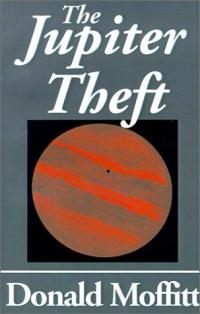Second Genesis by Donald Moffitt
 Sunday, February 13, 2011 at 12:02PM
Sunday, February 13, 2011 at 12:02PM 
First published in 1986
In Donald Moffitt's sequel to The Genesis Quest, Bram and his fellow humans are on their way to the home of Original Man, some thirty-seven million light years from the homeworld of the Nar. The humans were created by the Nar from the genetic code provided in a transmission that originated from the Milky Way. That story is told in The Genesis Quest and is summarized in chapter two of Second Genesis, a longish chapter you don't need to read if you've read and can recall the first novel. By the same token, the second chapter is so detailed that it's possible to read Second Genesis without reading The Genesis Quest first.
As they travel, the humans encounter an astronomical event that threatens the Nar worlds and the humans who remained with them. Much later, nearing the home of original man, they encounter a huge disc-shaped world, prompting an extended discussion of the engineering involved in its construction. A good chunk of the novel describes the archeological digs that enlighten the travelers about the lifestyles of Original Man. Additional adventures include contact with well-imagined insect-like aliens and confrontation of a crisis that threatens to doom the second incarnation of humankind. The novel ends with a nice symmetry that should please those who have read both novels.
The most serious problem with The Genesis Quest is its wordiness. Moffitt could have eliminated about 40 percent of the text, leaving a tightly spun story of mankind's search for its roots. Moffitt tends to get carried away with science lectures. For that reason, the narrative sometimes tends to drag, although a welcome dose of action in the last third of the novel brings the story back to life. Moffitt isn't particularly skilled at crafting sentences -- the novel has an unpolished feel -- but the writing style is an improvement over his first novel, The Jupiter Theft. As always, his human characters lack individual personalities. The novel's strength is the powerful imagination Moffitt brings to his epic view of the future, particularly with regard to evolutionary responses to extinction events. Most fans of future histories and space opera should enjoy Second Genesis.
RECOMMENDED

